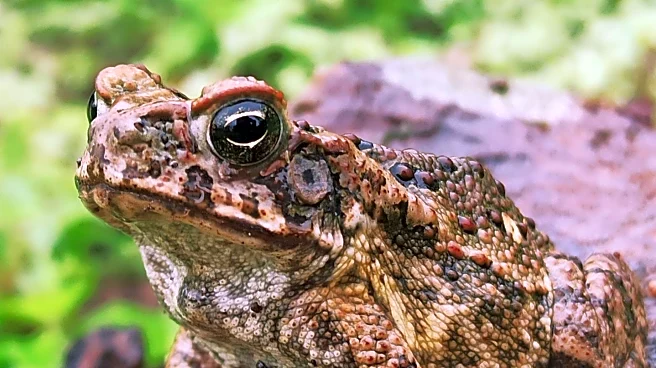What is the story about?
What's Happening?
A couple in Devon, England, discovered a rare five-legged toad in their garden pond. The toad's extra limb may have resulted from exposure to pesticides or damage sustained during its early life stages. Herpetologist Andrew Gray noted that amphibians are susceptible to environmental factors that can cause deformities. The toad was energetic and eventually hopped away, leaving the couple surprised by the unusual find. The discovery highlights the impact of environmental pollutants on wildlife and the ability of some amphibians to regenerate limbs.
Why It's Important?
The discovery of the five-legged toad underscores the potential effects of environmental pollution on wildlife. It serves as a reminder of the importance of monitoring and regulating pesticide use to protect ecosystems. The case highlights the resilience of amphibians and their ability to adapt to environmental changes, which is crucial for biodiversity. It also raises awareness about the need for conservation efforts to preserve natural habitats and prevent further harm to wildlife.
What's Next?
The discovery may prompt further research into the effects of pesticides on amphibians and other wildlife. Conservationists and environmentalists may advocate for stricter regulations on chemical use to protect ecosystems. The case could lead to increased public interest in wildlife conservation and the importance of maintaining healthy environments for all species.
Beyond the Headlines
The incident highlights the broader implications of human impact on natural ecosystems and the importance of sustainable practices. It raises ethical questions about the responsibility to protect wildlife from harmful substances and the role of individuals in conservation efforts. The discovery may contribute to ongoing discussions about environmental stewardship and the need for collective action to preserve biodiversity.
















